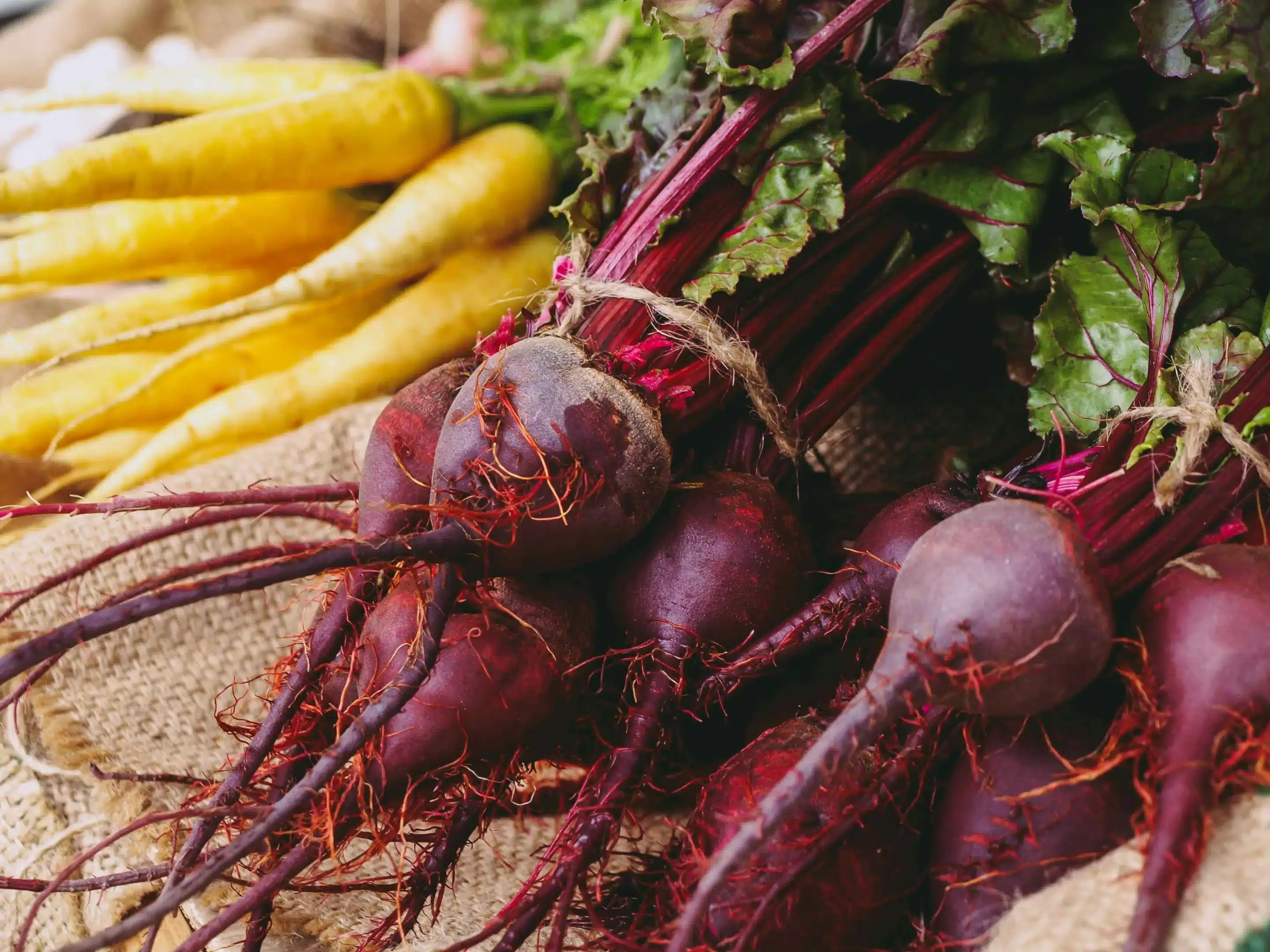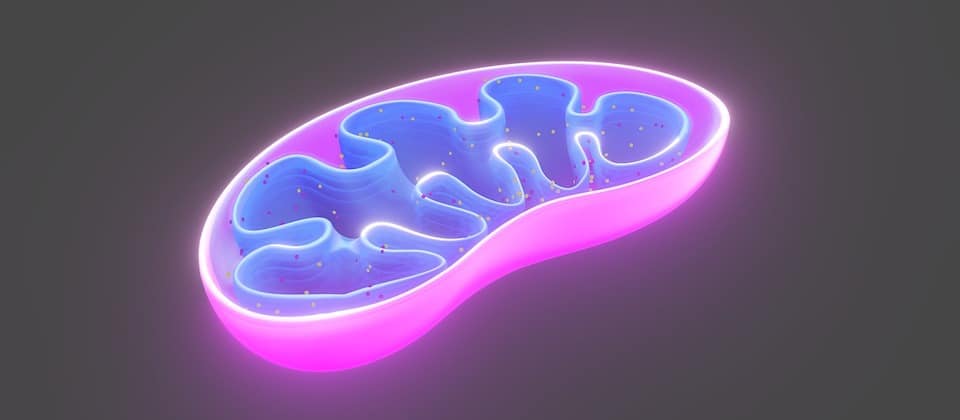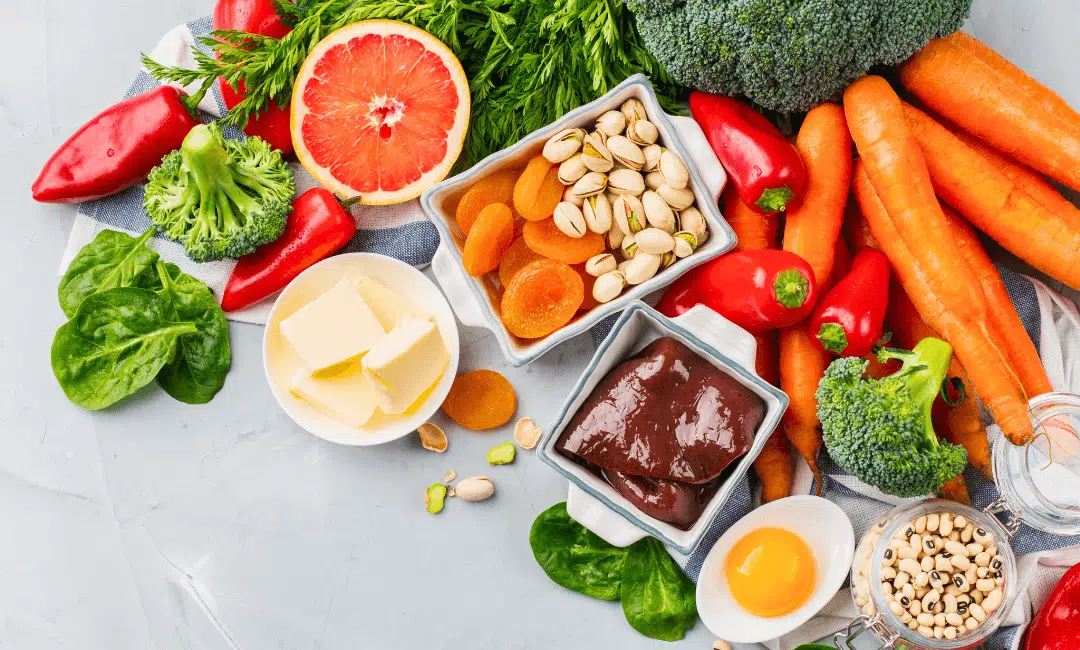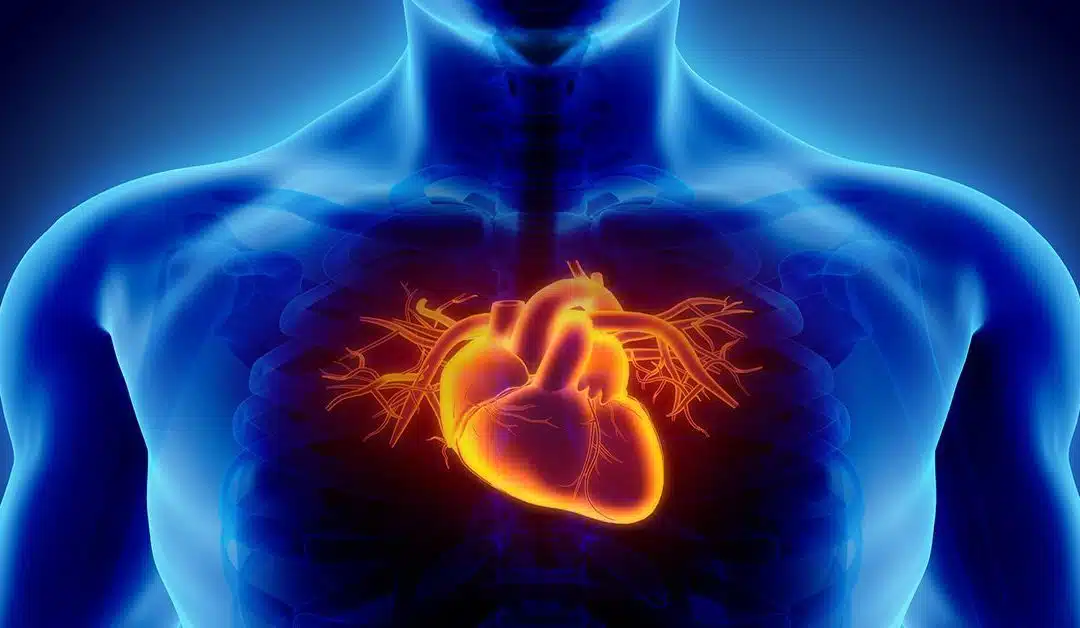Beets (also called beetroot) are a low calorie, hearty root vegetable known for their earthy flavor and aroma. Beets, whether deep ruby red, sunset golden or candy-striped varieties, are versatile vegetables that add a colorful burst of flavor when eaten cooked, raw or pickled. In addition to bringing a pop of color to your plate, beets are highly nutritious and packed with essential vitamins, minerals, and plant compounds, many of which have medicinal properties. These plant compounds can help to reduce inflammation and protect cells from damage. While beets are beneficial for overall health, they are considered beneficial for gut health due to several reasons that we will highlight below.
Gut Benefits of Beets
Current research in both humans and animals shows that beets, especially red beets, contain bioactive compounds that show great potential in abating gut dysbiosis, inducing changes in gut microbiome composition and promoting gut metabolite production and health [1,2]. Below is a list of additional benefits that beets contribute to gut health:
- High in Fiber: Beets are a good source of dietary fiber, including both soluble and insoluble fiber. One cup of beetroot contains 3.4 grams of fiber which aids in digestion by adding bulk to the stool, promoting regular bowel movements, and preventing constipation. It also serves as a prebiotic, fueling the growth of beneficial bacteria in the gut. The best way to keep our microbiome healthy is by eating prebiotic foods, which are non-digestible food ingredients that support the growth of beneficial bacteria in the colon.
- Rich in Nutrients: Beets are packed with essential nutrients, including vitamins (such as vitamin C and folate) and minerals (such as potassium and manganese), which support overall health, including digestive health.
- Antioxidant Properties: Beets contain various antioxidants, such as betalains and betacyanins, which have anti-inflammatory properties. These antioxidants help in reducing inflammation in the gut and protecting against oxidative stress, which can contribute to gastrointestinal disorders. Additionally, they contain powerful phytonutrients known as polyphenols which also have been found to reduce inflammation.
- Supports Liver Function: Beets contain compounds that support liver function and detoxification processes. A healthy liver is essential for proper digestion and overall gut health.
- May Improve Digestive Disorders: Some studies suggest that consuming beets or beetroot juice may help improve symptoms of certain digestive disorders, such as constipation, due to their high fiber content. Beetroot’s nitrate component is well-known for its dramatic hypotensive effects along with its notable impact on gastrointestinal motility. A 2020 study described the function of nitrates in altering microbial dysbiosis and sustaining colon consistency, indicating the potential of nitrates concerning anti-colitogenic effects [3].
Beets are nutritious, delicious, and easy to incorporate into your diet. You can juice, roast, steam, or pickle them. You can even enjoy them raw, either sliced thinly or grated. If buying raw beets at the grocery store or farmer’s market, choose beets that feel heavy for their size with fresh, unwilted green leafy tops still attached, if possible.
Risks of Consuming too many Beets
Beets are high in oxalates, which can lead to kidney stones. If you’ve had kidney stones, avoid beets or eat them only as a rare treat. Oxalates can also contribute to gout, a type of arthritis, so eat beets sparingly if you’re at risk.
Eating beets can also cause your urine and stool to turn red. This is called beeturia and is due to the betalain pigments found within the beets and isn’t harmful. It might alarm you as it looks like blood, but you’re just seeing the red beet pigment.
Final Thoughts
Overall, incorporating beets into your diet can contribute to better gut health and better overall health. However, as with any food, individual responses may vary, and it’s essential to listen to your body and consult with a healthcare professional if you have any concerns or underlying digestive or health conditions.
Sources
[1] Wang, Y., Do, T., Marshall, L. J., & Boesch, C. (2023). Effect of two-week red beetroot juice consumption on modulation of gut microbiota in healthy human volunteers – A pilot study. Food chemistry, 406, 134989. https://doi.org/10.1016/j.foodchem.2022.134989
[2] Adekolurejo, O. O., McDermott, K., Greathead, H. M. R., Miller, H. M., Mackie, A. R., & Boesch, C. (2023). Effect of Red-Beetroot-Supplemented Diet on Gut Microbiota Composition and Metabolite Profile of Weaned Pigs-A Pilot Study. Animals : an open access journal from MDPI, 13(13), 2196. https://doi.org/10.3390/ani13132196
[3] Hu, L., Jin, L., Xia, D., et al., (2020). Nitrate ameliorates dextran sodium sulfate-induced colitis by regulating the homeostasis of the intestinal microbiota. Free Radical Biology and Medicine, 152, 609-621. https://doi.org/10.1016/j.freeradbiomed.2019.12.002.
https://www.webmd.com/diet/health-benefits-beetroot
https://www.healthline.com/nutrition/benefits-of-beets
https://everybodysjuice.com/blogs/news/beets-the-gut-friendly-root-vegetable








